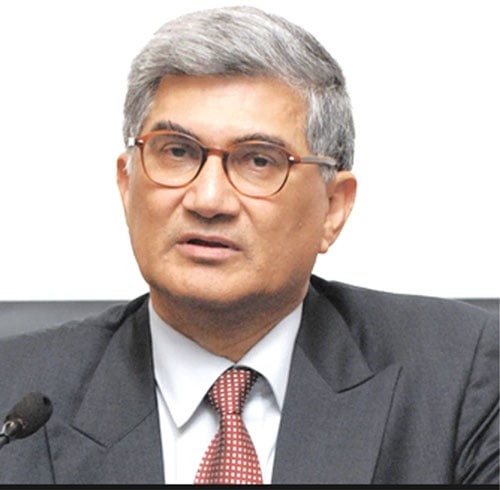Cape Town
Its rollout went almost unnoticed! No, it wasn’t the latest vaccine to counter the South African sequenced and highly transmissible Covid variant, Omicron sweeping through the UK, with almost 79,000 new infections in a single day on December 15.
It is the more mundane news that the Bank of England (BoE) had rolled out its landmark Alternative Liquidity Facility (ALF) in early December which has onboarded deposits from participating UK-based Islamic banks and Islamic Banking Windows (IBWs) of conventional banks for the first time.
But what does all this have to do with the UK, the Bank of England, or other countries including South Africa when the centre of gravity for the global Islamic finance industry lies in the Middle East, North Africa, Central Asia and South and South-East Asia?
ALF was launched a year ago by Andrew Hauser, Executive Director for Markets, at the BoE. But it has taken a year to finalise its operational and IT testing and its legal documentation.
The five main drivers behind the BoE’s initiative are rapid market growth; financial hub ambitions; financial inclusion and diversity; innovation; and ESG and sustainable finance considerations.
Islamic finance is an important niche of the mainstream global financial system, considered by the IMF and World Bank as a “priority” in their funding mix for OIC member countries. Its growth dynamics suggest a continuing upward trajectory. Refinitiv in its Islamic Finance Development Report 2021 published last month reports a steady increase in total assets under management (AUM) from $2.964 trillion in 2019 to $3.374 trillion in 2020 to reach a projected $4.940 trillion in 2025.
The UK and South Africa’s Islamic finance journeys have stark convergence and divergence. What the BoE innovates often becomes a model for other regulators to emulate. The UK is the pre-eminent centre for Islamic finance outside the Muslim world, underpinned by its strong historical and colonial relationships with the wider Muslim world; and its deep expertise in financial market origination, intermediation and distribution, embedded in a mature legal and regulatory framework. Most international Sukuk issuances has English Law as its governing law.
Islamic finance in the UK goes back to the 1970s when multinationals used to regularly access Murabaha commodity-based short term liquidity management and trade finance facilities through warrants on the London Metals Exchange. The phenomenon in South Africa started in a credit union on a much lower key. But the two countries authorised respective Islamic banks in the mid 1990s – Albaraka International Bank in London and Islamic Bank Ltd in Johannesburg. The latter was an unmitigated disaster because its promoter got a licence more for his loyalty as an ANC member than any banking acumen. After leaving a trail of debts, the bank according to SARB website is under “final liquidation” some 25 years after its collapse.
South Africa, the UK and Hong Kong became the first non-Muslim countries to issue international Sukuk in 2014. While the UK issued a benchmark GBP500m second Sukuk in 2021, the National Treasury cannot decide when to issue a debut rand Sukuk, almost two years after announcing its intention to do so.
London is the premier global financial market. The Treasury’s stated ambition of promoting South Africa as a financial hub for the continent pales into insignificance. Any ambition of a hub must embrace facilitating Islamic finance given its mainstreaming. The UK, post-Brexit, is also championing Global England as a conduit for inward Islamic investment. A cash-starved Global South Africa initiative could do the same.
Islamic financial institutions in many jurisdictions are at a disadvantage because they could not use the range of interest-based high-quality liquid assets (HQLA) to meet deposits and payments obligations, including cash and central bank reserves; government and corporate debt; and asset backed securities and commercial paper available to conventional banks. To try to make a more level playing field, the Basel liquidity rules give national supervisors discretion to treat Sukuk as HQLA, subject to various conditions.
“The consequent increase in demand for Sukuk from banks,” according to Hauser, “was one factor boosting issuance in recent years. But the proportion of Sukuk classed as eligible for regulatory buffers remains relatively modest compared to demand.”
ALF is an innovative non-interest-based deposit facility, the first of its kind offered by a Western central bank, designed to provide banks that cannot pay or receive interest with a similar ability to place funds at the BoE as conventional banks.
Under the ALF model, participant deposits are backed by a fund of high-quality AAA-rated Sukuk. The return from these instruments, net of operating costs, will be paid to depositors in lieu of interest.
According to Rhys Phillips, Head of Sterling Markets, BoE, “the ALF will help the UK Islamic finance sector to compete with conventional peers while staying true to their founding principles. This is an important step in providing a level playing field and enabling greater flexibility in meeting regulatory requirements under Basel III prudential rules.”
His colleague Hauser believes that the phi-losophical focus of Islamic finance on equity-like sharing of risk and reward will become increasingly relevant as market participants get to grips with the scale of debt accumulated in response to Covid-19.
“The Bank of England has long advocated the risk-sharing merits of GDP-linked instruments, which could be packaged in Sukuk form.
Together with HM Treasury and the FCA, we have recently announced a high-level working group to consider ways to foster a longer-term financial markets culture to support productive investment,” he revealed.
That Islamic finance seeks to avoid investing in socially detrimental activities is also a major advan-tage.
“Islamic finance,” added Hauser, “was pro-ESG before the term was ever invented! Issuance of so-called ‘green Sukuk’ has risen sharply in the past three years although from a low base, and there is plenty of scope for further growth.”—IOL News










